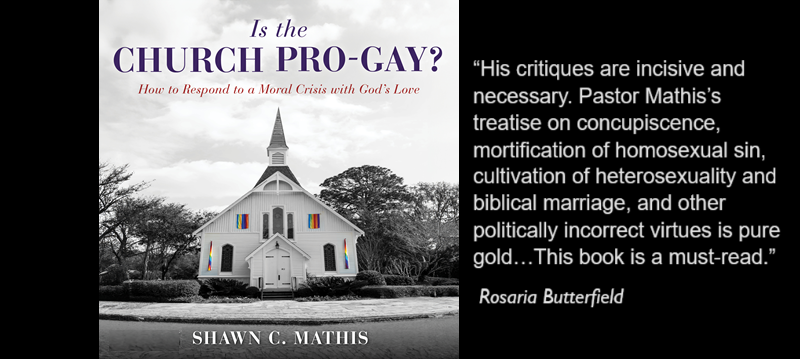
The Syrian refugee crisis is a serious problem. Thousands upon thousands of people are fleeing war. And they are in need.
But the solution to this problem is not straightforward. On the one hand, we are a prosperous country with the ability to help those in need. On the other hand, we have insufficient resources to properly vet masses of people.
Naturally, in deciding this political and moral question, Christians will appeal to the Bible. Typically the Left makes selective appeals because of their low view of the Bible. But at times those who take the Bible seriously misuse it as well.
Such is the case with many Christians quoting all the love passages of the Bible. What should we do about homosexual marriage? Love them (meaning accept them). What should we do about immigration? Love them (meaning accept them).
Similar reasoning is used by a recent article at Desiring God Ministries. Entitled “Eight Words from Jesus in a World with Refugees,” the essay is more a list of Bible verses than an engagement with the Bible and immigration. The author does not offer much detailed solution, praying: “May he give us all wisdom in how best to apply them.”
Given the popularity of the article (40k plus social media “shares”) and the widespread misunderstanding of the nature of love, it needs to be examined.
The Christian author certainly has a zealous heart for his countrymen. And this critique should in no way be construed to undermine that. And the command to love our neighbor, even strangers, should be part of the dialogue about immigration.
The article makes a number of appeals and implicit arguments that cannot stand on their own.
First, there is a one-sided appeal of the Old Testament: “Deuteronomy 10:18 tells us that God ‘executes justice for the fatherless and the widow, and loves the sojourner, giving him food and clothing…therefore love the sojourner.’ ”
God does execute justice for the fatherless and the widow: if the orphan is found to be a thief, he will be judged accordingly. The consistent and ongoing concern in many of the Deuteronomic laws is equity and fairness — that the rich not sway the judge against the poor and helpless (cp. Deut. 24:17).
The same is true for today. Politicians should not be beholden to rich individuals or corporations (liberal, conservative, or otherwise) to the detriment of justice. And this general command is not given as a blank check.
In fact, being a widow in the times of Israel, like Ruth, meant nothing like today’s government handouts. She worked the fields. And the sojourner still had to follow the laws of the land. And while the hungry poor who steals for bread should not be despised (rather pitied), he still suffers some consequences (Prov. 6:30, 31).
Next there are misapplications of the Golden Rule: “If you were a refugee, fleeing war, would you want another country to give you safe refuge?” The answer is maybe. As a refugee I may want a million dollars for each member of my family as well as lifetime social and economic freedom paid for by the government.
More importantly, does the Golden Rule necessarily mean bringing immigrants directly to America? Can we give them money or resources or a safe-haven where they are? Can that love be expressed in private organizations that offer just those things? Does it have to be immigration?
The author also misunderstands Christ’s call to self-denial: “Jesus calls us to die daily to ourselves for the sake of others. There is no gain in having a secure nation if we lose our souls due to self-love (by making safety our highest good).”
Safety should not be our highest good. That would make it an idol. And God will crush it. But love of our neighbor should not be our highest good either. That would be an idol. And God will crush it.
Only God should be our highest good. To glorify Him and enjoy Him forever should be our chief aim.
But the real question about helping the Syrian refugees involves balancing many good aims. Should not love for our neighbor drive us to have proper physical security? Hence, a local police force and a national military. And love for our fellow American neighbors can mean prudent caution in the face of known dangers.
And that is where this debate should reside: a detailed examination of all our responsibilities and the circumstances we find ourselves in . Reducing this complex social question to “love thy neighbor and deny yourself” is not only unbiblical, it can be harmful.
Lastly, when the author quotes the command to love our enemies, I had to shake my head. Does he not know the difference between private enemies and offenses and public enemies and crimes?
If a Christian were a magistrate, like Judge Moore, should he look at the criminal during sentencing and declare: I must turn the other cheek, so you are free to go?
I do not think that is the intent of the author. But since he gives little commentary, I can only guess how this command is to help Christians decide the Syrian refugee problem.
The reminders to love and not fear are needful. It is too easy to turn concerns into fear and fear into hate.
Yet as a careful reading of the Bible has shown, love is not the answer. It is not the answer to this crisis because the word love has no content in this article.
I love my children. But I discipline my children. My love to them is defined by the law of God. And God’s law commands us to discipline those we love. It even tells us not to feed those who will not work (2 Thess. 3:10).
But there is more. Love and law are prioritized by our relationship to others. My love to my family is manifested by my priority to them over others. I spend more time, more energy, more love for my family than my friends.
On a national scale, the same is true. Our monies (and what money do we really have as a debtor nation?) are prioritized to our own people and our own poor.
None of this gives an answer to the pressing question of Syrian immigration. But it does show that love does not compel Americans to necessarily receive the Syrian refugees. There are other considerations than love.
This article is a good reminder to be careful in our use of the Bible. Love is important. But love is not the silver bullet to our socio-political problems.








If America keeps singing:
“Bring them in, bring them in,”
Then “A Protestant in post-Christian America” will be replaced with “A Protestant in post-America”.
First dismantle the welfare state, then we can talk about open borders.
I have a few question:
You say, “On the one hand, we are a prosperous country with the ability to help those in need. On the other hand, we have insufficient resources to properly vet masses of people.”
How can you be prosperous and have insufficient resources at the same time?
You say, “But love of our neighbor should not be our highest good either. That would be an idol. And God will crush it. Only God should be our highest good. To glorify Him and enjoy Him forever should be our chief aim.”
You are assuming the author has made his love for others an idol. That is a pretty big assumption. Jesus still tells us to love God AND to love our neighbor going as far as saying, “All the Law and the Prophets hang on these two commandments.” (Matthew 36-40) Should we ignore half the law, so we don’t accidently commit idolatry?
“But the real question about helping the Syrian refugees involves balancing many good aims. Should not love for our neighbor drive us to have proper physical security? Hence, a local police force and a national military. And love for our fellow American neighbors can mean prudent caution in the face of known dangers.”
If our military and local police are of such high importance, why did God speak out against Israel and Judah about how their conduct towards those lowly in their society, eg: the immigrant, rather than building a mighty military force or police force? (Jer 7:6, Jer 22:3, Zech 7:10, Mal 3:5) After all it was mighty military forces that crushed them and cast them into diaspora.
“Lastly, when the author quotes the command to love our enemies, I had to shake my head. Does he not know the difference between private enemies and offenses and public enemies and crimes?”
Because Jesus clearly defined that, right?
“If a Christian were a magistrate, like Judge Moore, should he look at the criminal during sentencing and declare: I must turn the other cheek, so you are free to go?”
Nope, but what the Bible does say about judgement is: “For judgment is without mercy to one who has shown no mercy. Mercy triumphs over judgment.” (James 2:13) Is your point that some of these refugees are bad therefore we should keep most out? What if God says, “Well some Americans are bad, so I should keep Pastor Mathis out?” Doesn’t that follow the same logic James 2:13 communicates and what you are communicating?